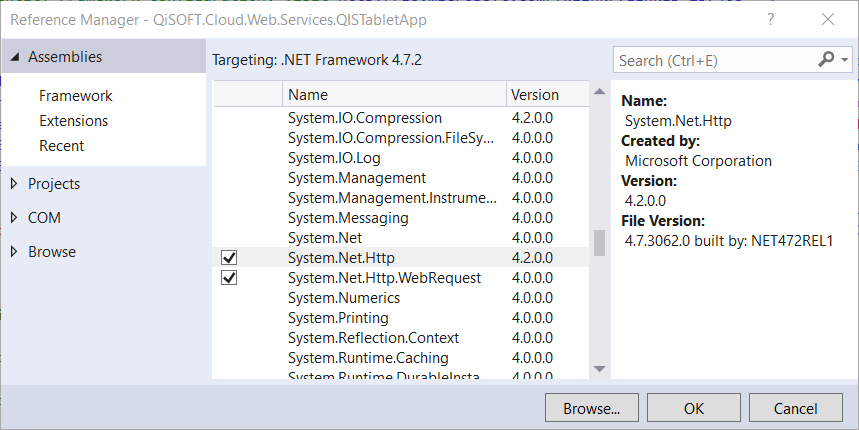I've copied my project to a clean Windows 10 machine with only Visual Studio 2015 Community and SQL Server 2016 Express installed. There are no other framework versions installed apart from those installed with Windows 10 and VS2015 or SQL Server.
When I try to start the WebApi project I get the message:
Could not load file or assembly "System.Net.Http, Version=4.0.0.0, Culture=neutral, PublicKeyToken=b03f5f7f11d50a3a" or one of its dependencies. The system cannot find the file specified.
The project's packages include:
<package id="Microsoft.AspNet.WebApi" version="5.2.3" targetFramework="net45" />
<package id="Microsoft.AspNet.WebApi.Client" version="5.2.3" targetFramework="net45" />
<package id="Microsoft.AspNet.WebApi.Core" version="5.2.3" targetFramework="net45" />
<package id="Microsoft.AspNet.WebApi.Tracing" version="5.2.3" targetFramework="net45" />
<package id="Microsoft.AspNet.WebApi.WebHost" version="5.2.3" targetFramework="net45" />
After building the project with .NET Framework 4.6.1, System.Net.Http the file is not found in the bin folder.
The file's path points to:
C:\Program Files (x86)\Reference Assemblies\Microsoft\Framework.NETFramework\v4.6.1\System.Net.Http.dll
The file's path of System.Net.Http.Formatting points to:
C:\Development\MyApp\packages\Microsoft.AspNet.WebApi.Client.5.2.3\lib\net45\System.Net.Http.Formatting.dll
Should the whole project target 4.5.1 or is there another way to reference the right assemblies?
](https://cdn.statically.io/img/i.sstatic.net/XAoSa.png)
update-package xxx -reinstallfor all nuget packages I'm using. It doesn't work either.